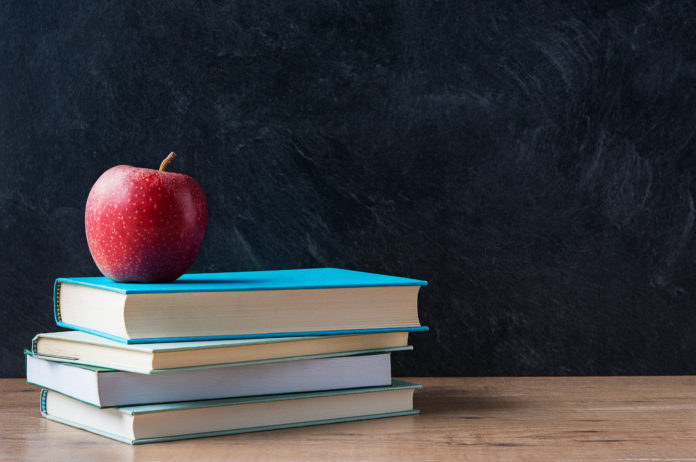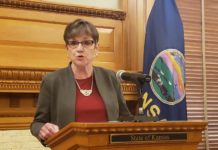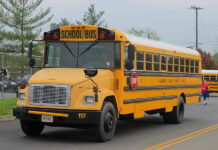Lawmakers are renewing the debate over how much the state should subsidize private education with a program that trades tax credits for private school scholarship donations.
House and Senate committees on Tuesday started work on bills expanding a program that’s authorized to give $10 million a year in state tax credits to entice businesses and individuals to donate money to the scholarship program for private schools.
The scholarships, limited to $8,000 a year for each student, are now available to students who are eligible for free lunches or enrolled in one of the state’s lowest 100 performing elementary schools for student achievement.
The legislation opens the door to more students by expanding the scholarship program to students who are eligible for free and reduced lunches and are enrolled in any public school in Kansas.
Currently, there are about 630 students who are receiving scholarships, and lawmakers said they expect that to double if the program is expanded – assuming each student receives an $8,000 scholarship.
While tax credits aren’t vouchers that directly subsidize private schools – critics call them that – they do fire up the debate over using public funds to give students more choice about where they go to school.
Supporters see the program as a way to let parents have more control over where their kids go to school, especially those whose families’ incomes limit their ability to move to an area with better schools.
The COVID-19 pandemic underscored the difference between socioeconomic classes of students with some school districts doing a better job teaching remotely than others, said Republican Rep. Brenda Landwehr of Wichita.
“It definitely showed the haves and the have-nots,” Landwehr said.
“The haves were able to put their kids in a full-time school where they could afford to pay for it, the have-nots were stuck.”
Critics say the tax credits subsidize private education with money that could be used to make public schools better.
“Tax credits are a direct diversion of tax dollars,” said Shawnee Mission Superintendent Mike Fulton.
“Money that would have been collected through taxes to benefit the entire community ultimately ends in control of private institutions.”
During the 2020-2021 school year, 632 students were awarded scholarships totaling approximately $2.0 million.
For tax year 2020, there were $3.5 million in contributions to scholarships, leading to $2.5 million in tax credits.
Since the program began in 2015, there have been $15.2 million in total scholarship contributions, with a total of $10.7 million in claimed tax credits.
At no point has the state even come close to reaching the $10 million cap in tax credits.
The most in tax credits the state has given since the program started was $2.9 million in 2017, according to a state education departmen report.
Republican state Rep. Patrick Penn of Wichita pressed Fulton about whether parents should have the ability to use their tax dollars to decide where their kids can go to school.
“Where do the taxes come from?” he asked Fulton.
“The taxes come from the people,” Fulton responded.
“The taxes come from the people. The people are the parents. The parents want to have a choice to educate their children,” Penn shot back.
“And you are telling me that the parents have no right to determine where their tax dollars go…and have the choice to educate their kids to get the same pedigree that you have, sir?”
The late-afternoon hearing that lasted 2 1/2 hours also included a sharp exchange between Republican state Rep. Sean Tarwater and Erin Gould from Game On Kansas, a grass-roots group that advocates for public education.
Tarwater said some of the public education advocates who opposed the legislation live in a more affluent part of Kansas.
“You and me: We come from a fairy land,” he said.
“Who are you? Who am I? Who are we, that we live in a fairy land with the greatest schools on Earth almost to tell these children, ‘I’m sorry, but I want more money for my school.’ Who are we to do that?” the Johnson County lawmaker said.
Gould questioned the wisdom of a program that encourages students to leave the public school system and cause it to lose state funding and when its costs don’t decline.
Gould said she grew up in an urban area in California and she understands the difficulties confronting less affluent urban and rural schools.
“I am not saying – and I don’t think any of the public school advocates are saying – that there are not opportunities for improvement to make sure that all students everywhere have a better chance,” she said.
“The question that we need to ask ourselves, I think, is whether it makes sense to promote a program that by its very nature is only going to serve some kids.”
“If we collectively agree…that there is room for improvement, why would we not be putting all of our energy into improving the programs that by their very nature are required to support all students and have the capacity to serve all students?
“A private school system running parallel to public schools does not ensure that every student that is wanting to go to a private would have access,” she said.
















